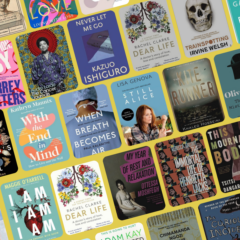The relationship between medicine and poetry has existed for thousands of years. From Apollo, the ancient Greek god of medicine, music, and poetry, to the Greek doctor Soranus who used poetry to treat mental health conditions. In more modern times, John Keats reflected on his experience in the medical field in both in his poetry, and in his belief that doctors and poets played a complementary role in healing.
So what brings these seemingly disparate fields together. Let’s try to unravel some of the ways in which they are interconnected? First and foremost, both poetry and medicine are concerned with the human experience. Whist medicine is generally concerned with matters of the human body, poetry is a vehicle for expression of the psyche. Both are tied deeply to the complexities of what it means to be human.
Perhaps the most surprising thread that weaves medicine and poetry together is the art of language and communication. Both medical professionals and poets need to be able to communicate complex or abstract ideas in concise and meaningful ways. Whilst it’s clear that a medical professional must explain procedures in terms patients can understand, and a poet must communicate the nuances of human emotion and experience in a way that resonates with others, what’s interesting is that the use of imagery and metaphors in poetry can help to create meaning in medical concepts that are difficult to explain or process. Writing poetry about medical disorders is as valuable a practice for doctors, reflecting on their own experiences of treating illness in patients, as it is for patients finding a way to process and come to terms with illness.
The concept that poetry can help cure us by giving us words to help find order in the chaos of ill health is the legacy of Julia Darling. Julia passionately believed that ‘poetry should be part of every modern hospital’. She felt that the language of poetry can confront the language of pain, not just for poets but for everyone:
‘It’s a powerful force, which can help us through the darkest times. I would like to see more poets in residence in the health system, more poetry books in waiting rooms, more poems on the walls, more training in creative writing for doctors, and more poems printed on primary care leaflets.’
julia darling ‘how to behave with the ill‘.
The legacy of Julia’s work has inspired a resurgence in the use of poetry as therapy. William Sieghart, founder of the Forward Arts Foundation (and Poetry Prize) and National Poetry Day, published prescriptions of poetry for therapeutic purposes in The Poetry Pharmacy: Tried-and-true prescriptions for the heart, mind and soul, and The Poetry Pharmacy Returns: More prescriptions for courage, healing and hope. His work was popularised on BBC and Radio 4. He believed that:
‘Suffering is the access point to poetry for a lot of people: that’s when they open their ears, hearts and minds. Being there with the right words for someone in that moment – when something’s happened, when they’re in need – is a great comfort, and sometimes creates a love of poetry that can last a lifetime.‘
WILLIAM SIEGHART ‘THE HISTORY OF THE POETRY PHARMACY’.
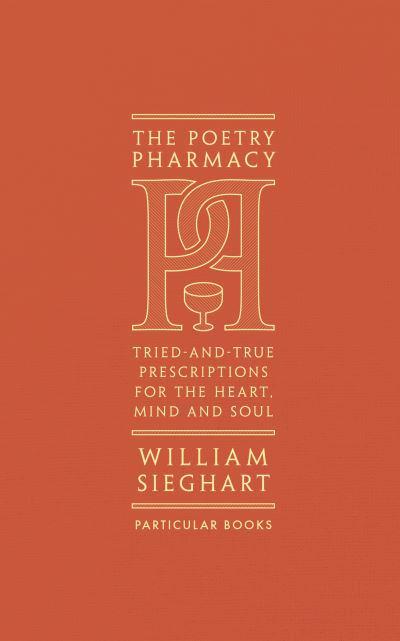
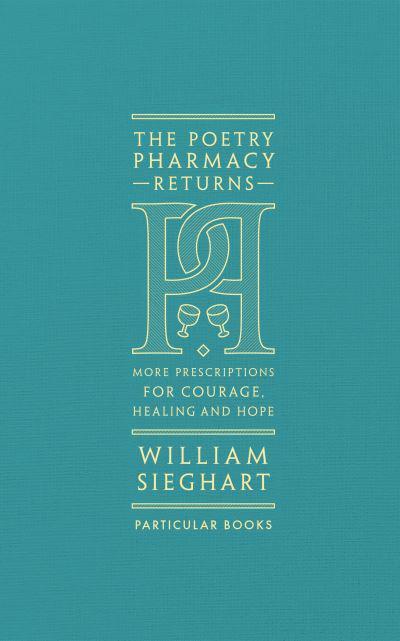
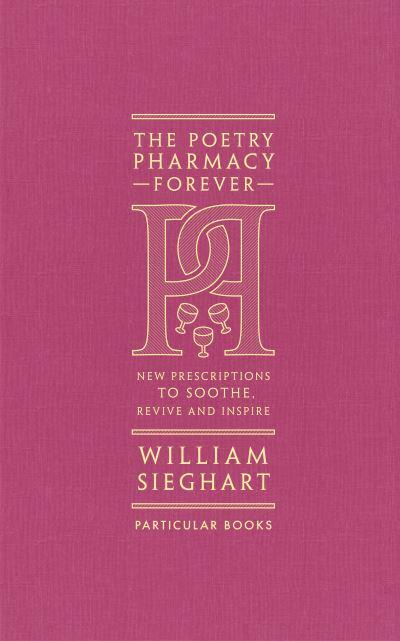
You may have heard of Deborah Alma, or The Emergency Poet? She fully subscribes to the concept of poetry as therapy and has been dispensing poems for many years, first from the back of her vintage ambulance and now from the world’s first dedicated Poetry Pharmacy, following a ‘consultation’.

Former Nurse-Verse to The Emergency Poet, Sue Spencer uses poetry to facilitate well-being in education and healthcare. As assistant editor to the BMJ Humanities, she believes that poetry can bolster people through challenging times. During her time as teaching fellow at Newcastle University, you may remember the Library facilitating an event named A Poetry Remedy where Sue offered poetry remedies following a personal exchange. This was was held in collaboration with National Poetry Day in 2017 and subsequent Off The Shelf sessions were a great success, held in conjunction with our Study Well@NCL campaign.
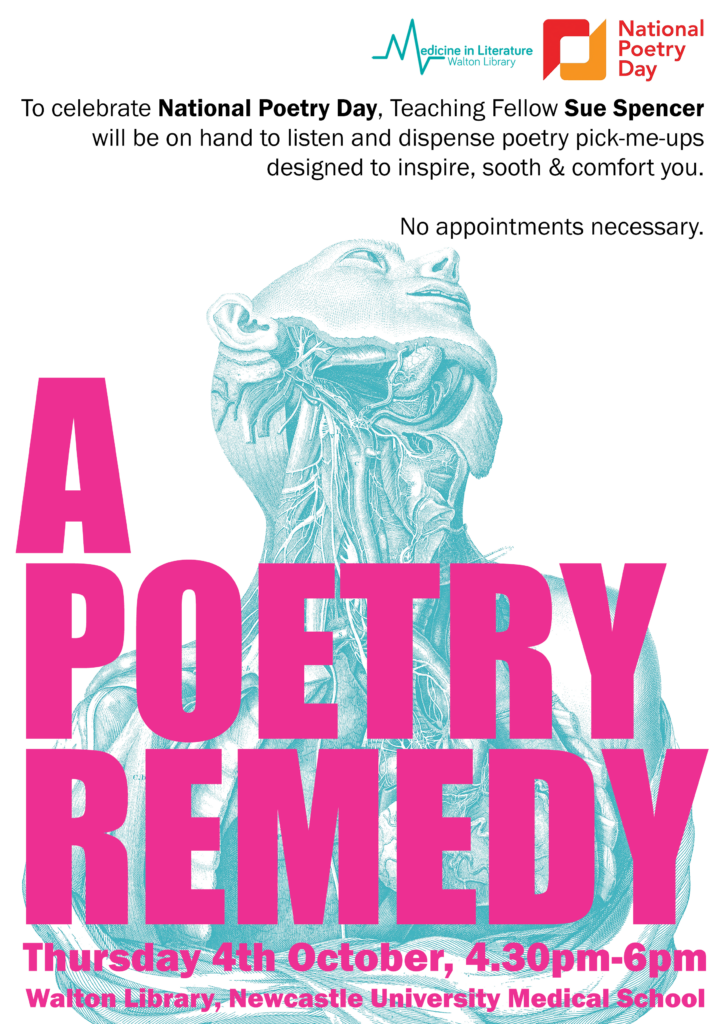
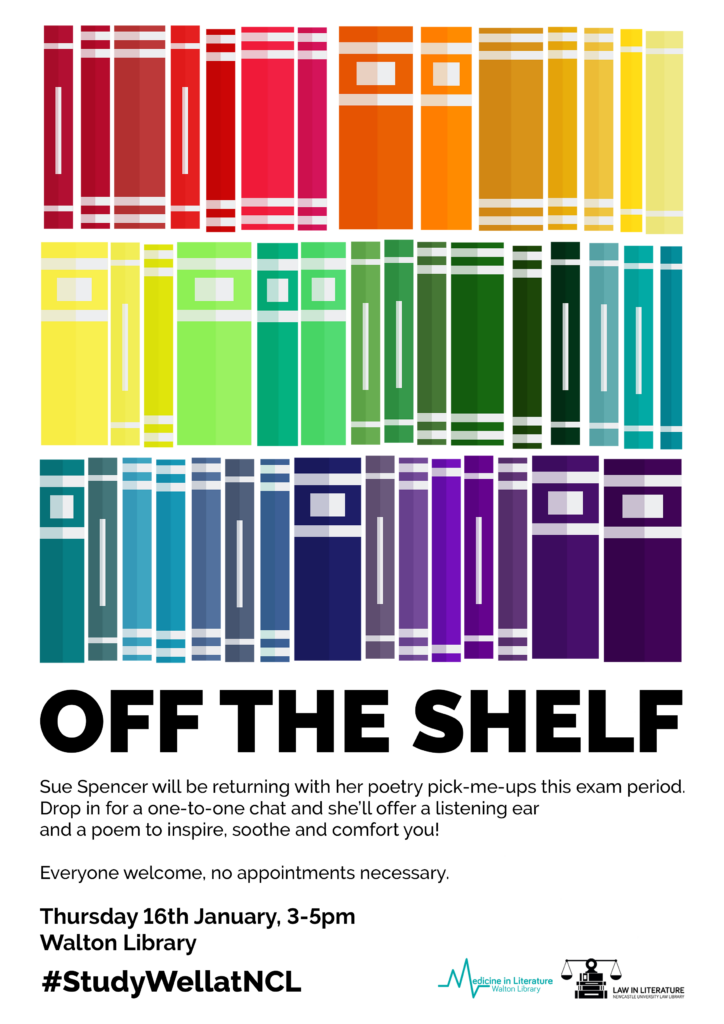
The interdisciplinary link between poetry and medicine has also been a source of creative expression and the focus of the International Hippocrates Symposium and Prize for Poetry and Medicine. The symposium draws together perspectives on medical themes such as the effects of poetic creativity on the experience of illness by patients, medical professionals and the wider community; the history, evolution, and future of medical science; and poetry as therapy. (Poetry, Medicine, and the International Hippocrates Prize, Donald R. J. Singer & Michael Hulse, Perspectives| The Art of Medicine| Volume 375, Issue 9719| p976-977, March 20, 2010). The 10th annual international conference on poetry and medicine was held as a partnership between the Hippocrates Initiative for Poetry and Medicine, the Newcastle Centre for the Literary Arts and the Newcastle Institute for Creative Arts Practice. Hosted at the International Centre For Life, a nod was given to the life, work and legacy of Julia Darling in a presentation ‘Changing the vocabulary of pain’ with Catherine Ayres, Cynthia Fuller, Emma Holliday, and Sean O’Brien.
Zooming out slightly and looking at the bigger picture, many higher education institutions have included medical humanities to the curricula in medical education, in a bid to mold compassionate as well as competent doctors. But, how does poetry, the arts and humanities enhance medical education? Genres such as poetry present a lens through which to view the perspectives of patients experiencing illness. Gaining a broader understanding of how illness impacts the lives of patients, their families and the wider community, brings a human dimension to the practice of medicine. As the patient population is diverse in terms of culture, values and beliefs, representations in the medical humanities can help to promote a broader understanding of the ways in which different experiences can impact on health, health inequalities and health outcomes, ultimately generating more inclusive patient care. This is the very crux of the purpose and value of the Medicine in Literature collection.
Hopefully this exploration of the relationship between medicine and poetry has cast a light on the ways in which the disciplines are more interconnected than might first appear. Why not try reading some of the medicine and poetry volumes in our collection and make up your own mind?
